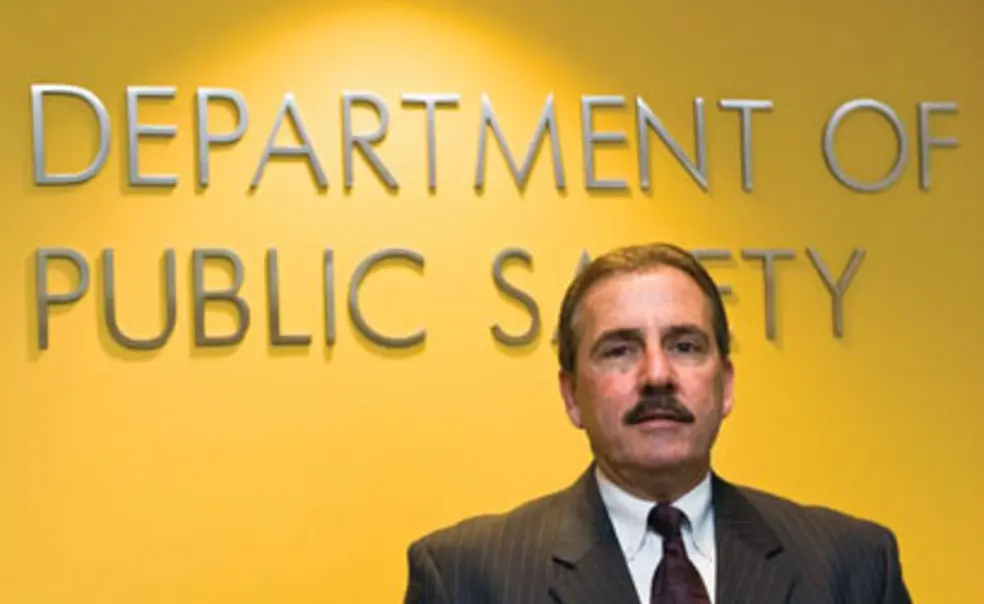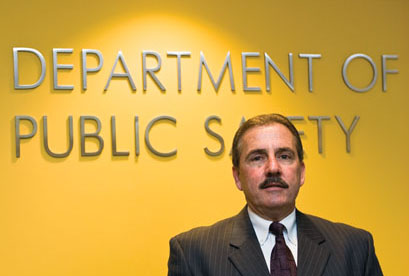Campus police seek approval to carry weapons
The University’s Fraternal Order of Police (FOP) union wants sworn officers to be allowed to carry guns on campus. Princeton administrators say they see no need to switch to an armed campus police force, however.
“This policy is based on our recognition that our main campus is located in two communities with rather sizable police forces that are readily accessible,” said Princeton spokeswoman Cass Cliatt ’96. “We are also concerned that the level of trust and rapport between Public Safety and students could really be diminished.”
But FOP President Jim Lanzi, the University’s crime-prevention coordinator, contends that Princeton needs to reconsider its stance. “Part of the police officer’s role is to carry a weapon, and the purpose of that is to be able to respond,” said Lanzi. “We see it as a
tool that is necessary to perform our task. If we don’t have the ability to protect ourselves, we can’t protect the community.”
Campus police could respond faster to a critical incident simply by virtue of their proximity and familiarity
with campus, Lanzi said, rather than waiting for local law enforcement to be called in.
Some Princeton students share these concerns. “Could you imagine a borough officer trying to find McCosh 10 or the B-6-N area of Firestone Library?” said Michael Westrol ’06, creator of the 160-member Facebook group Princetonians for a Safer Campus. “They’re rolling the dice and hoping that nothing will happen.”
The issue has gained additional momentum since last year’s shooting spree that claimed 33 lives
at Virginia Tech. Two days after the first anniversary of the massacre, the International Association of Campus Law Enforcement Administrators unveiled its Blueprint for Safer Campuses during an April 11 conference at Princeton. Among its recommendations: “Sworn officers should be armed.”
Lanzi said the FOP is pressing for a change that would limit the carrying of firearms to about 22 sworn officers at the University, and not to the more widespread general-security officers.
The president of the New Jersey College & University Public Safety Association, Glenn Miller, supported the FOP’s request. “To ask a police officer to respond to a dangerous situation without the appropriate tools is like asking a professor to teach without the proper books or resources,” Miller said.
On the national level, colleges have demonstrated growing interest in shifting their forces from the traditional role of crime prevention to armed law enforcement. U.S. Bureau of Justice statistics show that among four-year colleges and universities with at least 2,500 students, two-thirds had armed campus police officers in 2004–05.













1 Response
Steve Rementer ’68
10 Years AgoArming campus police
I guess creating your own armed militia (Notebook, May 14) would go nicely with other constitutional issues addressed on campus. Why not outsource? Get the local constabulary to hire additional officers and then rent them back. They would be of service on and off campus, and the officers would actually know each other.